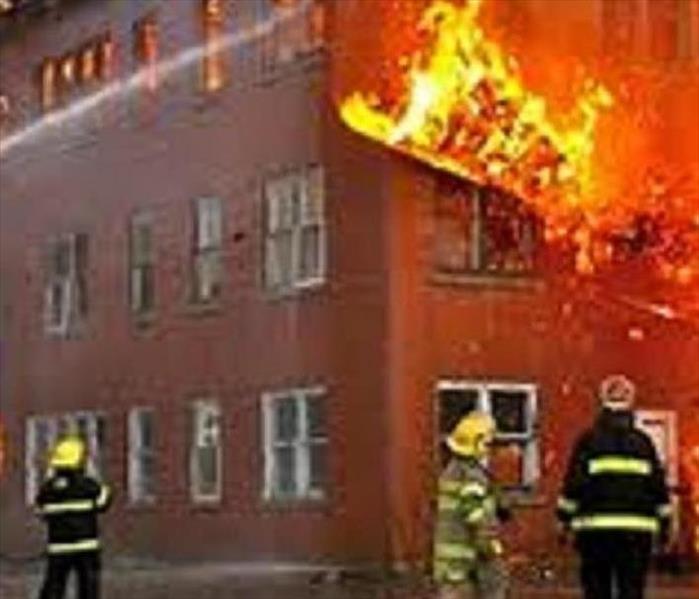Commercial Fire damage in Woolwich NJ, Fire Damage in Woolwich NJ,
6/9/2017 (Permalink)
Whether you own your building, lease your workspace or work at home, business property insurance protects your business’ physical assets.
Commercial property insurance plans vary from policy to policy, but are generally categorized by the type of event leading to a loss, and by what specifically is insured.
For example:
- A fire could destroy your building and the contents inside
- A burst water pipe could damage your documents, drawings or other valuable papers
- A storm could damage your outdoor sign
What business property insurance covers
Small business property insurance is one of the most important investments ensuring the future of your business. Here are some of the important aspects of your business that commercial property insurance helps protect:
- Your building
- Your outdoor sign
- Your furniture and equipment
- Your inventory
- Your fence and landscaping
- Others' property
What you need to know about business property insurance
A complete business property insurance plan is one of the smartest investments you can make in your business. It protects the costly, physical assets of your company such as the building, its contents and any outdoor fixtures such as signs and fencing.
Savvy business owners know that a fire or severe windstorm can shut down a business for an extended period of time, often leading to a permanent closure. But with a comprehensive business properties insurance plan, you’ve got support and financial assistance to help you recover quickly.
Understanding the basics
Commercial property insurance plans vary from policy to policy, but are essentially categorized by the type of event leading to a loss, and by what specifically is insured.
Basic property insurance usually covers losses caused by fires or explosions, theft, damage from vehicles or airplanes or acts of vandalism. Additional coverage can be added for earthquakes and breakage of glass.
The essential items to insure in a business property insurance plan include your building, office equipment, inventory and outdoor items on the premises.
Taking inventory
Before you meet with an agent, it helps to take inventory of your business. You’ll need to determine what property you want to insure, what its replacement value would be and if it’s worth insuring.
The property you might insure could include:
- The building that houses your business (If you lease or rent your space and are contractually obligated to insure the building you occupy there's coverage for you, too.)
- All office equipment, including computers, phone systems and furniture, regardless if owned or leased
- Accounting records and valuable company documents
- Manufacturing or processing equipment
- Inventory kept in stock
- Fence and landscaping
- Signs and satellite dishes
Determining the loss
Commercial property insurance plans pay for losses based on the replacement cost of the item or its actual cash value.
- Replacement cost (RC) refers to the amount necessary to repair, replace or rebuild property on the same premises, with comparable materials and quality without deducting any amount for depreciation.
- Actual cash value (ACV) is the cost to replace it with new property of similar style and quality, less depreciation.
Typically, the premiums for policies covering property insured on an ACV basis are lower because a lower limit is used due to the deduction for depreciation. This amount might not be enough if you elect to insure the property on a RC basis.
Your insurance agent can work with you to make sure you have your property adequately insured.






 24/7 Emergency Service
24/7 Emergency Service
